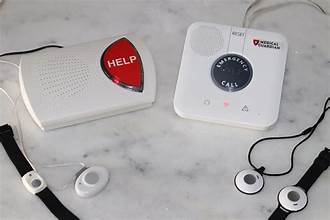Who wrote letters to three people in various places. I am going to share them like A blog because they are still my writing. I enjoy writing and thought this would be good to share.

A few weeks ago, I thought contacting Brianna’s boss would be a good idea, as she does not know how things are. The caregivers work alone with each client, and their supervisor rarely asks the client for their opinion of the employee. Brianna’s supervisor, office workers, and I initially had trouble ensuring that they would prioritize my needs first. However, after the dust settled, I rarely spoke with them as there was never a need for a restitution solution.
Hey Paula,
As long as I have been in Florida, I have used your company and thought it was time to reach out. It is always good to know the facts in life, and I wanted to share some answers to questions that you may have. First, I am a writer and a Blogger who has been published in a national magazine ten times (100% true). I am not trying to be arrogantly braggy, but I am letting you know this message is informative and hopefully somewhat entertaining. If I wanted to brag, I would mention my Pulitzer Emmy and Peabody awards, but this email is about Brianna and not my fake news.
I have worked with Brianna the entire time I have been here and have been extremely happy with her work. People periodically pose a query, questioning why I like to work with her after hearing our beginning was not as smooth as it is now. OK, fine, only two individuals have made this inquiry in two years, yet that is not the point, and they still pose the query. I assumed if people were asking me this question, you, her boss, might also be curious about the answer.
About a year ago, I published a blog discussing the five most influential and beneficial people in my Florida life. By the way, I only have approximately 67,000 followers and am always trying to gain more, so please follow my blog. Below, I have included the paragraph about Brianna in that specific entry, although I never use real names. I like working with Brianna because even when the day is not going well, she moves like a chipmunk on Red Bull and gets things done.

“Brianna is my Personal Aide who assists me with everything and always has a smile and a positive attitude, even in unpleasant situations. I often tell people she is a wonderful work wife who should wear a superwoman uniform because she is fantastic and a lifesaver. Brianna works weekdays for five hours, and upon her arrival, everything needs doing, yet when leaving, everything is complete. Constantly moving like a Mako shark, when she stops to rest, you can put a clock on it as within 90 seconds, she is up doing more. Brianna has undebatable, inexplicable, and unfathomable abilities, and her existence in my life is irreplaceable. She is the person I see the most in an average week, and if you think I am exaggerating excessively, then you do not understand. While yes, some are for comedic and dramatic effects, the truth is that the rest of my days are impossible without her twenty-five hours of work each week.”
Scott
Every caregiver sits silently on a sliding scale between good and not-so-good assisting helpfulness levels. This predicament means it is essential for you to determine how much of the bad you are willing to accept in exchange for their good side. We can and should follow these steps in various situations, including finding friends.

I have worked with Brianna, my personal aid, caregiver, or whatever other name, for nearly two years. She is now with me thirty-one hours per week and can take me anywhere I need to go, including doctor’s appointments and the like. This woman has made herself indispensable in my life, telling me that when her time with me concludes, life will be devastating for a while. Although a writer, I cannot conjure up the correct words to truly convey how much I appreciate and value Brianna.
Good caregivers care continuously.
Scott Cremeans lives in Central Florida. He is a US Marine diagnosed with multiple sclerosis in 2001 at 27. Scott has successfully managed his MS symptoms independently with his faith, friends, and funnies. You can read more about his MS journey by visiting his blog, http://www.mymsramblings.com, where he muses about life in the slow lane with his literary wit.
































